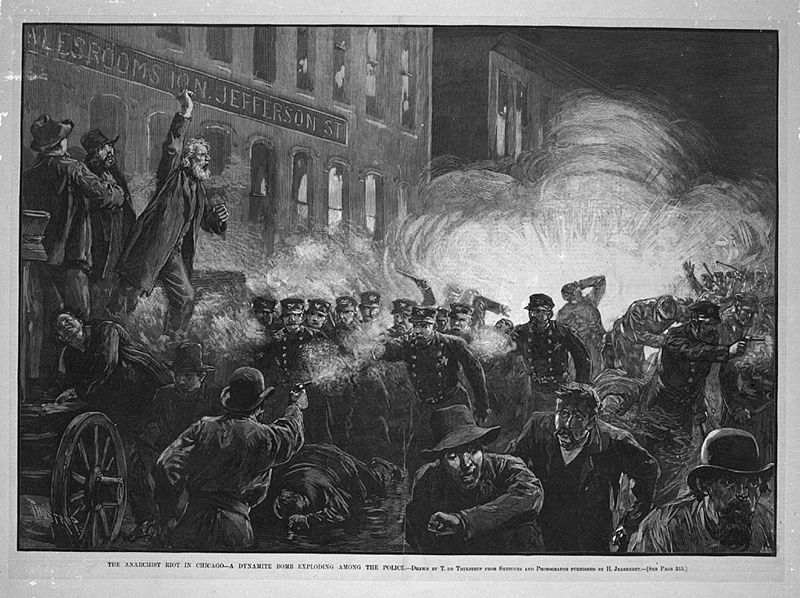

Students rise up, revolt, and reclaim their school. Together with workers and faculty, they walk out of class and don’t beg, don’t ask, but demand in unequivocal terms that the State give back their university. The call resonates on every campus. There are people in every classroom waiting to hear such a call, whenever and from wherever it may come. Today it was from California, soon it may emerge from others’ lips, with other words perhaps, but in similar spirits, with similar rage.
This is our hope. This is how, we believe, things should be. The university is ours, each campus, each building, by right belongs to those who work in them, who teach in them, and to us who study and live in them. Education is ours, by right. It is not to be doled out and denied according to legislators’ and administrators’ whims. It is not to be suspended at the rhythm of capitalism’s failure. Education is not, and should never be, a privilege.
But as you are showing, students refuse to be controlled. We refuse to be complacent consumers and victims of a “market” pitted perpetually against us. We refuse to have a line drawn before us- of gender, class, race, sexuality, or any other form of privilege, of unpayable tuition hikes, of asphyxiating budget cuts. Petitions, protests, walk outs, negotiations, and occupations are only the beginning of a fight that will, by whatever means necessary, be decided on the part of the students.
UC Santa Cruz and every school in the University of California system is your school. Each and every school, public or private, is our school. The workers’, the students’, and the faculty’s. Occupations are not theatrical stunts for media attention, or powerless angry outbursts by activists, or even simple and routine “protests.” They are fundamentally, radically, reminders to ourselves and to all students who are seeing their universities under attack: there is another way. Another university and another world are possible and necessary.
Occupations and protests, all student movements are the forceful eruption of a crisis. The crisis we feel daily. The crisis millions face at work, in class, on the streets, at the dinner table. The incompatibility of our needs and desires on one hand, and the present condition, imposed upon us from above, on the other, is catastrophic. And so we revolt.
The present occupation, and the wave of student protest that is arising is an answer to the question forced by this crisis, the question we have been asking ourselves for a while now: “WHOSE SCHOOL?” Thanks, UC Santa Cruz and all UC students in resistance, for giving us such a fucking good, loud answer.
From the east coast to the west in love and solidarity,
A Collection of Radical Students at Columbia University
Students for a Democratic Society, International Socialist Organization, Student Coalition on Expansion and Gentrification, LUCHA Columbia, Students Against Imperialism, Columbia Coalition Against the War
New York City, September 25, 2009
Declaration of Student Solidarity
Students, Youth, Workers, People of Color, and all Oppressed Peoples are being forced to absorb the crisis of Wall Street. We are being attacked and Wall Street and Washington are trying to make us pay for their crisis. Their plan is to cut our public programs, attack our social support systems, attack our families with mass layoffs, and expand the war on workers and the poor. The conditions that Students and Youth are faced with are just the beginning of what we will experience as we enter the world as workers. In this common interest, Connecticut Students Against the War issues the following statement:
Students and Youth all over the world face tuition increases, firings of staff workers, adjunct, and non-tenured faculty, cuts to programs and classes, expansion of class sizes in college and the public school system, cuts in essential programs, a general decrease in opportunities for employment, the Economic Draft and growing military influence in Youth Programs and schools.
In Connecticut, our public schools are facing drastic cuts threatening the jobs of an estimated 1500 teachers and paraprofessionals, threats to unions contracts, the closure of several extracurricular programs, and the halt in school purchases of needed supplies. This threatens the jobs of these workers and the quality of each student’s education as class sizes grow, work hours increase, supplies drop, and as the crisis deepens.
At the same time that we receive no relief from our debts, while the government bails out the institutes who are responsible for the crisis, while it continues to fund illegal wars and occupations around the world. We have become victims of a crisis that we could not prevent and over which we have no control to reverse.
We as Connecticut Students Against the War declare opposition to tuition increases, staff reductions, forced work increases, abandonment of children and students, attacks on union contracts, cuts to academic programs and classes, and any present or future disciplinary measures by administrations against students struggling for justice.
We call for the canceling of all student debt, an expansion of the education system, an expansion of employment opportunities for youth and workers to include truly green jobs, an expansion of government aid to all who seek education, and a reduction of tuition costs to increase access and affordability to higher education. We call for students in the public education system and at the college level to unite with their communities to resist all cuts and to demand an end to the war on workers and the poor to make us pay for the crimes of high finance.
We declare support for and stand in solidarity with struggles against cuts in education and social support systems.
We declare our support and stand in solidarity with UC Students who are standing up against the regressive policies of the university and the state of California.

We are occupying this building at the University of California, Santa Cruz, because the current situation has become untenable. Across the state, people are losing their jobs and getting evicted, while social services are slashed. California’s leaders from state officials to university presidents have demonstrated how they will deal with this crisis: everything and everyone is subordinated to the budget. They insulate themselves from the consequences of their own fiscal mismanagement, while those who can least afford it are left shouldering the burden. Every solution on offer only accelerates the decay of the State of California. It remains for the people to seize what is theirs.
The current attack on public education – under the guise of a fiscal emergency – is merely the culmination of a long-term trend. California’s regressive tax structure has undermined the 1960 Master Plan for free education. In this climate, the quality of K-12 education and the performance of its students have declined by every metric. Due to cuts to classes in Community Colleges, over 50,000 California youth have been turned away from the doors of higher education. California State University will reduce its enrollment by 40,000 students system wide for 2010-2011. We stand in solidarity with students across the state because the same things are happening to us. At the University of California, the administration will raise student fees to an unprecedented $10,300, a 32 percent increase in one year. Graduate students and lecturers return from summer vacation to find that their jobs have been cut; faculty and staff are forced to take furloughs. Entire departments are being gutted. Classes for undergraduates and graduates are harder to get into while students pay more. The university is being run like a corporation.
Let’s be frank: the promise of a financially secure life at the end of a university education is fast becoming an illusion. The jobs we are working toward will be no better than the jobs we already have to pay our way through school. Close to three-quarters of students work, many full-time. Even with these jobs, student loan volume rose 800 percent from 1977 to 2003. There is a direct connection between these deteriorating conditions and those impacting workers and families throughout California. Two million people are now unemployed across the state. 1.5 million more are underemployed out of a workforce of twenty million. As formerly secure, middle-class workers lose their homes to foreclosure, Depression-era shantytowns are cropping up across the state. The crisis is severe and widespread, yet the proposed solutions – the governor and state assembly organizing a bake sale to close the budget gap – are completely absurd.
We must face the fact that the time for pointless negotiations is over. Appeals to the UC administration and Sacramento are futile; instead, we appeal to each other, to the people with whom we are struggling, and not to those whom we struggle against. A single day of action at the university is not enough because we cannot afford to return to business as usual. We seek to form a unified movement with the people of California. Time and again, factional demands are turned against us by our leaders and used to divide social workers against teachers, nurses against students, librarians against park rangers, in a competition for resources they tell us are increasingly scarce. This crisis is general, and the revolt must be generalized. Escalation is absolutely necessary. We have no other option.
Occupation is a tactic for escalating struggles, a tactic recently used at the Chicago Windows and Doors factory and at the New School in New York City. It can happen throughout California too. As undergraduates, graduate students, faculty, and staff, we call on everyone at the UC to support this occupation by continuing the walkouts and strikes into tomorrow, the next day, and for the indefinite future. We call on the people of California to occupy and escalate.










